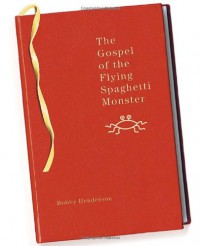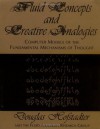251
Followers
4
Following
Manny Rayner's book reviews
I love reviewing books - have been doing it at Goodreads, but considering moving here.
Currently reading
The Greatest Show On Earth: The Evidence For Evolution
R in Action
Fluid Concepts and Creative Analogies
McGee on Food and Cooking: An Encyclopedia of Kitchen Science, History and Culture
Epistemic Dimensions of Personhood
Pattern Recognition and Machine Learning (Information Science and Statistics)
Relativity, Thermodynamics and Cosmology
The Cambridge Handbook of Second Language Acquisition
 “In the beginning God created the heaven and the Earth...”
“In the beginning God created the heaven and the Earth...”“Can we leave out God and just say that, in the beginning, the Universe got created?”
“NO!”
“Oh well, leave it in for now. Let's continue.”
The rest of this review is in my book If Research Were Romance and Other Implausible Conjectures
 Snowman has spent a terrible night, full of confused, whiskey-sodden dreams, and when the Children of Crake call to him from the bottom of his tree he is still mostly asleep.
Snowman has spent a terrible night, full of confused, whiskey-sodden dreams, and when the Children of Crake call to him from the bottom of his tree he is still mostly asleep."You don't exist!" he shouts. "You're not even characters in a Margaret Atwood novel! You're just part of a review. And Manny won't write it until Jordan's finished the book as well."
None of this makes sense to Snowman, and it makes even less sense to the Children of Crake.
"What is a novel?" asks Eleanor Roosevelt.
"And who is Jordan?" asks Madame Curie. "Is she the same as Oryx?"
The rest of this review is in my book If Research Were Romance and Other Implausible Conjectures


The Sun's Keeley says:
Professor Tits isn't just someone to Jacques off to, he's one of the breast algebraists of the 20th century! When I'm feeling tensor, there's nothing I like better than a quiet evening in, curling up in bed with some finite sheaf cohomology. As the Prof always tells me:

Mmmm! [Is this right? Ed]
____________________________
GRATUITUOUS CROSS-PROMOTION
People who enjoyed this review may also enjoy my short poem on the subject.
 I wish I'd written A Quantum Theory of Mitt Romney. In particular, Figure 2... the best Feynman diagram joke I've ever seen!
I wish I'd written A Quantum Theory of Mitt Romney. In particular, Figure 2... the best Feynman diagram joke I've ever seen!
 Dr. Rayner
Dr. RaynerDr. Rayner has just finished reading Mr. Phillips, a novel he greatly enjoyed, and now he walks to work along his usual route thinking about the review he is planning to write. Dr. Rayner has recently learned, from an online friend he feels he knows quite well but has never met in person, that he may be a High Energy Introvert or HEI. HEIs spend a large part of their time having entertaining conversations with themselves, since they tend to find the company of other people enervating. Dr. Rayner thinks that Mr. Phillips, who must be about the same age as himself, is probably also an HEI.
The rest of this review is in my book If Research Were Romance and Other Implausible Conjectures
 SOME BOOKS I ALREADY OWN WHICH I PLAN TO FINISH BEFORE BUYING THE HUNGER GAMES
SOME BOOKS I ALREADY OWN WHICH I PLAN TO FINISH BEFORE BUYING THE HUNGER GAMESJohn Lanchester, Mr. Phillips
Margaret Atwood, Oryx and Crake
Steven Weinberg, The First Three Minutes
Jean-Jacques Sempé, Le Petit Nicolas
Merritt Ruhlen, The Origin of Language
Pernilla Stalfelt, Le petit livre de caca
Hubert Reeves, L'univers expliqué à mes petits-enfants
Gustave Flaubert, Trois Contes
Dominique Lambert, Un Atome D'Univers
Jean-Pierre Luminet, L'Invention du Big Bang
Francis Collins, The Language of God
Ben Marcus, The Flame Alphabet
Dominique de Saint-Mars, Lili est harcelée à l'école
Michel Brice, Love-Téléphone
C.M. Kornbluth/Jordan Park, Valerie
Snedwick P. Philebius, clownfucker
Troy NeNuthe, Troy DeNuthe's World of Ice Cubes
Carroll Quigley, Tragedy and Hope: A History of the World in Our Time
Ian McEwan, Solar
Dominique Lambert, L'itinéraire spirituel de Georges Lemaître
Gilles Brulet, haïku, mon nounours
Helge Kragh, Cosmology and Controversy
Simon Singh, Big Bang
Alison Bechdel, Invasion of the Dykes to Watch Out For
Arthur Koestler, The Sleepwalkers
Bertrand Russell, Religion and Science
Matthew Hurley, Daniel Dennett and Reginald Adams, Inside Jokes
Zep, Titeuf, Tome 3: Ça épate les filles
Alan Guth, The Inflationary Universe
Helge Kragh, Higher Speculations
Hubert Reeves, La première seconde
Jim Holt, Why Does the World Exist? An Existential Detective Story
Stephen Hawking, The Grand Design
John Lennox, God and Stephen Hawking
Immanuel Kant, Universal Natural History
Pierre Probst, Pouf le chaton bleu
Dominique de Saint-Mars, Max et Koffi sont copains
Thomas Wengelewski, 99 Classic Movies for People in a Hurry
Dominique de Saint-Mars, Max décide de faire des efforts
Roger Hahn, Le système du monde
A.D. White, A History of the Warfare of Science with Theology in Christendom
Lars Saabye Christensen, Beatles
Tomi Ungerer, Les Chats
Paul Steinhardt and Neil Turok, Endless Universe
Dominique de Saint-Mars, Max adore jouer
Tomi Ungerer, Orlando
William Paley, Natural Theology
René Goscinny and Albert Uderzo, Asterix chez les Helvètes
François Lelord, Le Voyage d'Hector ou la recherche du bonheur
Helge Kragh, Matter and Spirit in the Universe
Charles Darwin, On the Origin of Species
C.S. Lewis, Miracles
M.J. Nicholls, A Postmodern Belch
Fred Hoyle, The Origin of the Universe and the Origin of Religion
Anna Benson, C
Alan Lightman and Roberta Brawer, Origins
Dominique de Saint-Mars, Max et Lili ont des pouvoirs magiques
Fabrice Bonvin, OVNIS: Les agents du changement
Fred Hoyle, Frontiers of Astronomy
Miles Kington, Let's Parler Franglais Again!
Tristran Davies, Wallace & Gromit: The Lost Slipper and the Curse of the Ramsbottoms
Herman Bondi, Cosmology
Leonard Susskind, The Cosmic Landscape
James Joyce, Ulysses
Harry Blamires, The Bloomsday Book: A Guide through Joyce's Ulysses
David B. Lentz, Bloomsday: The Bostoniad
George Gamow, One, Two, Three... Infinity
Richard Swinburne, Is There a God?
Sylvia Day, Bared to You
Dominique de Saint-Mars, Max se fait insulter à la récré
Dominique de Saint-Mars, Max veut etre délégué de la classe
Dominique de Saint-Mars, Nina a été adoptée
Heather Busch and Burton Silver, Why Cats Paint
Tomi Ungerer, The Three Robbers
Pierre-Simon Laplace, Exposition du système du monde
Paul Davies, God and the New Physics
Bill Bryson, A Short History of Nearly Everything
Norman Lindsay, The Magic Pudding
Philipp Koehn, Statistical Machine Translation
Sean Carroll, From Eternity to Here
E. Nesbit, The Story of the Amulet
Paul Davies, The Mind of God
Edward Eager, Half Magic
Brian Clegg, Before the Big Bang
Mary Leunig, A Piece of Cake
Guy de Maupassant, Pierre et Jean
Thomas Kuhn, The Structure of Scientific Revolutions
Lucretius, On the Nature of Things
Olga Grushin, The Dream Life of Sukhanov
E.W. Barnes, Scientific Theory and Religion
William Shakespeare, Pericles, Prince of Tyre
Rudy Rucker, Mathenauts
Philip Pullman, The Good Man Jesus and the Scoundrel Christ
Mikael Niemi, Populärmusik från Vittula
Albert Einstein, The Meaning of Relativity
Patrick Lapeyre, La vie est brève et le désir sans fin
Iain M. Banks, Matter
Lee Smolin, Time Reborn
Guus Kuijer, Het boek van alle dingen
Abraham Pais, Subtle Is the Lord: The Science and the Life of Albert Einstein
Robert Jastrow, God and the Astronomers
Comtesse de Segur, Ourson
George Gamow, Thirty Years that Shook Physics
Terry Pratchett, The Last Continent
Helge Kragh, An Introduction to the Historiography of Science
Heinrich Hoffmann, Der Struwwelpeter
Italo Calvino, Si par une nuit d'hiver un voyageur
Tove Jansson, Komet im Mumintal
William James, The Varieties of Religious Experience
Richard Feynman, The Character of Physical Law
Sir Thomas Heath, Aristarchus of Samos
Otto Neugebauer, The Exact Sciences in Antiquity
Carlo Rovelli, The First Scientist: Anaximander and his Legacy
Arthur Berry, A Short History of Astronomy
David Foenkinos, La délicatesse
David Wallace, The Emergent Multiverse
Peter Byrne, The Many Worlds of Hugh Everett III
Kevin Werbach, For the Win
Galileo Galilei, Dialogue Concerning the Two Chief World Systems
Alexander Unzicker and Sheilla Jones, Bankrupting Science
Ian Bogost, How to Do Things with Videogames
Pierre Pevel, Les Lames du Cardinal
Cordelia Fine, Delusions of Gender
Victor Stenger, God: The Failed Hypothesis
David Berlinski, The Devil's Delusion
Agniya Barto, Игрушки
Somenath Mithra, Science and Mankind
Thomas Lewis, Fari Amini and Richard Lannon, A General Theory of Love
Jim Baggott, Farewell to Reality
Dominique de Saint-Mars, Max n'aime pas lire
François Lelord, Hector et les secrets de l'amour
Richard Burton, The Arabian Nights
Julia Herschensohn and Martha Young-Scholten, The Cambridge Handbook of Second Language Acquisition
Immanuel Kant, Critique of Pure Reason
Harold McGee, On Food and Cooking
Charles Babcock, Management Strategies for the Cloud Revolution
But I imagine I'll get to it in due course. I just don't see what the rush is.
Oppdageren
 Oppdageren (The Discoverer in English) is the third and concluding volume of the trilogy that starts with Forføreren. Since the three volumes form a tightly-knit whole, it makes most sense to review the whole series, which is one of the most powerful, moving, original novels I've read in years. It's staggeringly inventive and daring, and it's not just displaying post-modernist cleverness for its own sake. Quite the contrary. The book has a burning desire to reach out to you, touch you, and change your life forever. It's very rare to find something like this.
Oppdageren (The Discoverer in English) is the third and concluding volume of the trilogy that starts with Forføreren. Since the three volumes form a tightly-knit whole, it makes most sense to review the whole series, which is one of the most powerful, moving, original novels I've read in years. It's staggeringly inventive and daring, and it's not just displaying post-modernist cleverness for its own sake. Quite the contrary. The book has a burning desire to reach out to you, touch you, and change your life forever. It's very rare to find something like this.The rest of this review is in my book What Pooh Might Have Said to Dante and Other Futile Speculations
_________________________________________
[After rereading the series]
It is a masterpiece. The beginning is mysterious and enticing; the middle, difficult and painful; the ending, extraordinarily powerful and moving.
A recurring image, which is presented in many different forms, is Māyā, the veil of illusion. At one point, Jonas, who is applying to architecture school, gives a presentation on his favorite part of Oslo. He arranges it in three semi-transparent layers. The outermost one shows the town as it is today. Behind it, and clearly visible, you can see the town as he remembers it, before it was brutally remodelled in the 60s. And if you look carefully, you can see just a hint of the third layer: a strange, temple-like building, quite unlike anything in the "real" Oslo.
As usual, the novel is referring to itself. Every book has a surface, and most worthwhile books have something underneath that surface, which you can see if you're paying any attention. But under both of these, one can sometimes catch a glimpse of the true book, the book the author wanted to write but was unable to realise due to his mortal limitations. The true version of this book is visible with quite unusual clarity. It's a trick, but it's a wonderful, awe-inspiring trick.
To conclude, for other readers who wondered what they looked like:
en sitronsommerfugl og en dagpåfugløye, en admiral og en neslesommerfugl

 Repent! Repent, I say unto ye, while yet there is time! Repent, O Goodreads Administrators, of thy iniquity and hypocrisy! For did ye not say, that all Holy Books shall be deemed anonymous of authorship? Did ye not say, that the Playing Field should be level?
Repent! Repent, I say unto ye, while yet there is time! Repent, O Goodreads Administrators, of thy iniquity and hypocrisy! For did ye not say, that all Holy Books shall be deemed anonymous of authorship? Did ye not say, that the Playing Field should be level? And what, now, do we see, to our everlasting shame? The Bible and the Torah have ye marked as Anonymous. Yea, also the Quran have ye treated in this wise. But the Gospel of the Flying Spaghetti Monster have ye marked as the work of His mortal prophet Bobby Henderson.
Repent, I say again, and cast thyselves on His infinite noodly mercy! Fill me not with righteous wrath! Ye would not like me when I am filled with righteous wrath.
Okay, say not that I failed to warn ye...
[Diverse sound effects including insensate Hulk-like roar, money-changers being cast from temple, boiling pasta, etc etc]
What Pooh Might Have Said To Dante and Other Futile Speculations
 In response to innumerable queries from MJ and other people, this cheap, tacky PDF edition is now available to people who want to post sarcastic reviews without substantially affecting their bank balance.
In response to innumerable queries from MJ and other people, this cheap, tacky PDF edition is now available to people who want to post sarcastic reviews without substantially affecting their bank balance. Can be ordered from the relevant Lulu page. But I tell you, it's no substitute for the real thing.
 This book introduces Conformal Cyclic Cosmology: an amazingly beautiful idea, which I would love to be true. Unfortunately, the evidence to date is far from compelling. But, even if it isn't correct, Penrose is asking such interesting questions that the book is absolutely worth reading.
This book introduces Conformal Cyclic Cosmology: an amazingly beautiful idea, which I would love to be true. Unfortunately, the evidence to date is far from compelling. But, even if it isn't correct, Penrose is asking such interesting questions that the book is absolutely worth reading.So here's my understanding of what it's about. Penrose starts by explaining the basic puzzle, which was a key theme in The Road to Reality and has been tantalizing cosmologists in general for a good while. As everyone knows who was paying attention during high school physics, the Second Law of Thermodynamics says that entropy increases with time; the universe gets progressively more and more disordered. If you drop an egg off a table, it breaks. But the time-reverse of this process is so vanishingly improbable that you don't ever expect to see it happen. A mess of egg-white, yolk and shell will not magically reassemble itself into an intact egg and then bound off the floor onto a table.
The rest of this review is in my book If Research Were Romance and Other Implausible Conjectures

This is a flawed but remarkably interesting piece of work - one of the most original chess books I have ever read. Hikaru Nakamura, currently World #7 and the undisputed king of Bullet Chess, opens up and tells you what it's all about. Can you really play a game of chess when each player only has a single minute to make all his moves? And is it a worthwhile thing to do? The answers, I am now convinced, are yes and yes. By compressing the schedule to this apparently insane point, the player is forced to confront fundamental truths he might otherwise prefer to ignore. And by the way, forgive me for using the masculine pronoun - for some reason, the game seems to be heavily male-dominated.To see the World in a Grain of Sand
Or Heaven in a Wild Flower
Hold Infinity in the Palm of Your Hand
And Eternity in a Game of Bullet Chess
But going back to those fundamental truths. Chess players like to imagine that they can play perfectly if they only take the time to think carefully about their moves, and that the game is about truth and logic. This is absolutely not true, and Bullet Chess reveals the lie in all its absurdity. Chess, like life, is about using a finite amount of time to best advantage. The positions where you can find the one best move are the exceptions. More often, you should trust your experience and judgement and make a move which, as far as you can tell, is okay. If you overthink, you won't necessarily play a better move than the one you first came up with. It's entirely possible that you'll play a worse one, and you'll be wasting precious time that you might have been able to spend doing something genuinely useful at a later stage of the game. Nakamura gives instructive examples of bad time management. As he says: in Bullet, thinking for ten seconds when the position doesn't demand it is at least as bad as dropping a piece.
I have read few books that convey as effectively as this one how every second counts, every moment is precious. It's an odd path to enlightenment, but then all paths to enlightenment are odd. Nakamura Sensei, I bow before you.
Now, if only the editor had spent more than one minute on his mundane but important task...
________________________________________
Update for people who are serious about speed chess: this book has tangibly improved my play, in particular in the all-important field of time management. I strongly recommend it. You may think you manage your time well, but you can almost certainly do better. And if you want to see hard evidence, look at my ICC rating graph for the last year. For the three months before I read the book I was averaging under 2250, but the average since then is over 2350. I have trouble believing it myself.

________________________________________
Not and I are doing live web commentary this week at the Geneva Masters tournament (you can see us here if you're curious). Nakamura is playing, and we have already commentated on six of his games.
At speed chess, he is simply phenomenal. He never seems to need any time to think. Today, he was playing Alexandra Kosteniuk, a former Women's World Champion and a reasonably strong grandmaster. He completely destroyed her in both games, just using a few minutes of the 25 he had available. Kosteniuk used nearly all her allotted time to achieve two miserable positions, both of which she lost quickly.
You really wonder how he does it.
Persona and Shame: The Screenplays of Ingmar Bergman
 Well, come on, tell me what this movie's about! It must be about something. And you're the central character, or so we're assured. But how can the central character not say anything? How are we supposed to know what you're like?
Well, come on, tell me what this movie's about! It must be about something. And you're the central character, or so we're assured. But how can the central character not say anything? How are we supposed to know what you're like?Don't just look at me with those big eyes. Give me a hint. You mean that words are an inadequate way to communicate what we think and feel? That if we stopped talking for a minute and really listened, then we'd be able to hear the things that mattered? That most of the time we talk mainly for effect, or to fill the silence, or because we're afraid of thinking about the important things?
No, that's not it. I wondered for a moment, when you smiled... but I guess your smile meant something else. Maybe you mean that not talking says more than talking. That when we don't talk to people, we say more than when we do. That I should think about the people I'm not talking to, and the ones who aren't talking to me?
You could at least nod or shake your head. Help me see if I'm on the right track. But you don't. Why not? Damn it, this is pretty annoying. I've watched your movie five times now, and I still haven't figured it out. I'm pretty smart. It's your fault. You shouldn't be so obscure. Just explain it in normal terms. That would be a whole lot simpler.
Okay, if you're going to be like that then I won't watch you any more. See if I care. I am now officially telling the world that I will not watch Persona again. Maybe that'll get a reaction. Oh, and the opening sequence. It sucks. Bigtime.
Damn it, you smiled. I didn't mean it. I will watch you again. Maybe I'll get it sixth time round.
Aaargh!!


From Jan Kjærstad's Oppdagaren, which I am currently rereading:
My translation:Hun förklarte det kompliserte tegnet for meg, viste meg til og med hvordan det kinesiske ordet for hjerte - fire vakre streker, liksom kamre - lå i midten, som et ord i ordet. "En kjærlighet uten hjerte er ingen kjærlighet," mumlet hun, mest til seg selv. Så retet hun igen blikket mot meg. "Det kan ha vært noe du ikke forsto med den personen som skrev det," sa Margrete.
She explained the complicated character, and even showed me how the Chinese word for 'heart' - four elegant strokes, like the heart's four chambers - lay in the middle, a word inside the word. "Love with no heart is not love," she murmured, mostly for herself. Then she looked at me again. "Maybe there was something you failed to understand about the person who wrote it," said Margrete.
 Damn! I wish I'd thought of it! Still, maybe adding my own verses will help me tear myself from my screen come bedtime:
Damn! I wish I'd thought of it! Still, maybe adding my own verses will help me tear myself from my screen come bedtime:Goodnight Goodreads, goodnight page.
Goodnight Harry Potter fans, all in a rage.
Goodnight conference paper I still need to write.
Goodnight Internet AND THAT'S GOODNIGHT!!
1...d6: Move by Move
 A physicist friend was complaining to us the other day about the Higgs field. "It really shouldn't have been named after Higgs," he grumbled. "Two Belgian guys came up with the original idea. But no one could pronounce their names, and Higgs was easy to say." I'm afraid it happens in chess too, as this book will show. There is a seriously underrated defensive system for Black, characterized by the moves 1... d6 and then ...Nf6, ...c6 and usually ... Qa5 or ... Bg4 at some point. It looks odd, but people up to world champion level have been fans - the late Tigran Petrosian used it every now and then. Here's the main line position, reached after the moves 1. e4 d6 2. d6 Nf6 3. Nc3 c6 4. f4 Qa5:
A physicist friend was complaining to us the other day about the Higgs field. "It really shouldn't have been named after Higgs," he grumbled. "Two Belgian guys came up with the original idea. But no one could pronounce their names, and Higgs was easy to say." I'm afraid it happens in chess too, as this book will show. There is a seriously underrated defensive system for Black, characterized by the moves 1... d6 and then ...Nf6, ...c6 and usually ... Qa5 or ... Bg4 at some point. It looks odd, but people up to world champion level have been fans - the late Tigran Petrosian used it every now and then. Here's the main line position, reached after the moves 1. e4 d6 2. d6 Nf6 3. Nc3 c6 4. f4 Qa5:
And who invented this interesting idea? Who should the defense be named after? Well, according to Cyrus Lakdawala and many other sources, the honor should go to Czech master Josef Přibyl. Except that - you guessed it - no one can pronounce his name. So it's usually just called "1... d6".
Unfortunately, I seem to have moved to a country where no one can pronounce my name either. I hope this won't cost me.
La Neige Était Sale
 - Ladies and gentlemen, watch carefully. Here's Frank, a young punk who lives in his mother's brothel in occupied France. He lies, drinks, steals, does black market business with the German officers, commits murder just for fun. Yes, feel free to touch him, he fucks his mother's girls every night while treating them like shit and is also trying to seduce the 16 year old virgin who lives across the hall.
- Ladies and gentlemen, watch carefully. Here's Frank, a young punk who lives in his mother's brothel in occupied France. He lies, drinks, steals, does black market business with the German officers, commits murder just for fun. Yes, feel free to touch him, he fucks his mother's girls every night while treating them like shit and is also trying to seduce the 16 year old virgin who lives across the hall.Are you still watching... you may check that there is nothing up my sleeve... and now, using only sparse, descriptive prose, I will transform him into a universal symbol of human suffering and redemption that will remind you of L'Etranger, King Lear and Crime and Punishment, but still has a character all its own.
Sir, I understand your scepticism. You don't think it's possible, but... ABRACADABRA!!!
The audience stare in disbelief. A lone voice from the back asks plaintively:
- Bloody hell, how did Simenon do that?











